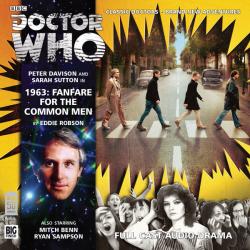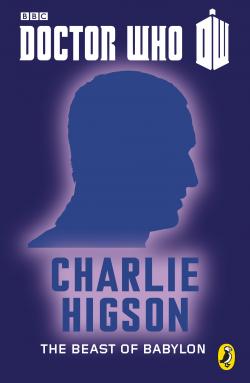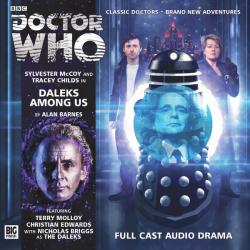This review is based on the UK Region 2 DVD release.This time last week, our world view of
Doctor Who was quite different. Last month's
Terror of the Zygons represented the end of a DVD era, as the final complete adventure was released and so from
The Tenth Planet onwards we'd be looking forward to incomplete stories with animation to fill the gaps ... and then Friday midnight changed that completely! Now, we have another complete story to look forward to (
The Enemy of the World), and all the excitement that entails. So, in some ways, the status of this adventure has diminished; however, that can hardly be said of the story itself.
Regardless of above,
The Tenth Planet still has its 'firsts': it's the first story in the fourth production block, leading to the first credit on the show for several crew including costume designer
Sandra Reid, make-up designer
Gillian James, designer
Peter Kindred, and production assistant
Edwina Verner (and also the first time she met future husband
Michael Craze!); it's the first appearance of the Cybermen, it's the first change of the show's key performer - and, of course, the first (fleeting) appearance of
Patrick Troughton's Doctor.
But, of course, it is also a story of lasts, with
William Hartnell delivering his final starring performance as the Doctor. It's a shame that, then, with his health declining, that it was hardly a "pull-out-all-the-stops" adventure, and Hartnell himself had to pull out of episode three due to bronchitis leading to a rapid rewrite to cover his absence. And to add insult to injury, some bright anonymous spark managed to lose the last episode, so we are almost unable to watch his final performance either (thank goodness for
Blue Peter and off-air recordings that at least allow us to see his departure in the closing moments).
His departure is one of those stories of which there are many variations, with Hartnell himself giving two versions as time went on; regardless of whether he was persuaded to leave or otherwise, it is interesting to see him play the role for this final, single story of a new season. As I mentioned above, this wasn't a climatic way to go;
Colin Baker famously declined to reprise his role for one final adventure after his removal from the show, but I suspect had he done so his story would have been as 'epic' as, say,
Jon Pertwee's or
Peter Davison's departure. Of course back then
Doctor Who was almost a production line so it would just be one episode after another, with Hartnell coming back off holiday, so in many ways it would have just been 'business as usual' and not such a 'stand out' moment in the same way as
Matt Smith's departure at Christmas will be. Another side-effect of this is that the following week's Troughton-led adventure was a natural progression in the series, and not the hugely jarring impact of having a "mid-season change" when
The Twin Dilemma followed
The Caves of Androzani!
In the scenes that he's in, however, the Doctor continues to be a dominant personality, something he would need to have been against the equally dominant General Cutler at Snowcap base. The production notes indicate that there was a mutual respect between Hartnell and
Robert Beatty, and their performances complement one another nicely as a result. It's a shame we lost more of that in episode three, but at least they got to have their confrontation at the start of episode four.
Having those personalities are actually vital to the story as, otherwise, it could have been a very mundane story indeed, in spite of the involvement of the Cybermen. We basically have an attempt to save one space mission (Zeus 4) followed by an attempt to save another space mission (Zeus 5), the fates of both of which were inevitable - the destruction of one and the survival of the other - as Mondas passes through its own inevitable course of destruction as the Doctor foretold. It is Beatty's portrayal of the professional leader abusing his responsibility in order to save his son that maintained my interest, at least.
It is also one of those stories where the overall end result would have been reached without the Doctor being there at all - it is Ben's initiative to help defeat both invading Cyber-forces at the base that is of consequence. To be honest Polly didn't have to be there at all, though she did offer to make coffee - a career that would come to haunt her in future episodes!
Back to the Cybermen. I was a little dismissive of them above, which is a little unfair. They may not have been quite the central threat that they become in future adventures, but
The Tenth Planet does a good job of introducing the (apparently) emotionless creatures that evolved from a dying race. Personally, I think the Mondasians look far better than the Telosian we encounter later, the balance between the mechanical and biological works well with the still-human hands and bandaged almost mummified heads - also, though it was probably a production error, the close-ups of them in pristine DVD-a-vision occasionally give the rather disturbing impression of the sunken eye sockets of a cadaverous skull as the actors' eyes were glimpsed within. Vocally, the effect of their mouths opening to emit their syncopated ministrations (thanks to the remarkable performance by
Roy Skelton) also accentuates their alien qualities - though post-Rainbow I can't help imagining a cybernetic race of yellow wide-mouthed creatures (which wasn't helped by Zippy popping up in an advert just now too!).
The attempts at giving the International Space Control a truly international feel works quite well (better than in
The Moonbase I felt).
Earl Cameron commented on his role as a black astronaut as being quite advanced at the time; however, women still hadn't made their way into key technical roles by 1986 it seems. Having said that, there is
Ellen Cullen credited as "Geneva Technician", though she managed to pass me by!
A few observations:
- Was his blasting the Cyberman with its own weapon the first time Ben has taken a life? He certainly was quite cut up about it afterwards.
- The description of the Z-Bomb's capabilities made me wonder if the Master inadvertently left the Time Lord files on the Uxarian's weapon behind on Earth at some point...
- Was this the first appearance of an air duct escape in Doctor Who?
- The Cybermen are depicted as a slow-moving, methodical race throughout - except when they end up under attack, judging by the way the last one scarpers in episode three!
- Suits that are able to protect against radiation but not poison gas?
- Why on Mondas do Cybermen ships have prison cells and manacles when they are all logical and wouldn't understand 'crime'?
- At least in 1986 Mondas would still have been considered a tenth planet in the solar system!
- "Next Week The Power Of The Daleks" - yeah, we wish!!!
Episode Four:
With episode four missing presumed not in Nigeria or other African outpost, this edition presents us with an animated alternative, courtesy of Planet 55 who previously worked on
The Reign Of Terror. Their distinctive anime look is still visible, though the quick-cutting points-of-view from their earlier work has been toned down here. There is still a little more inter-cutting between characters that perhaps jars a bit with the more sedately live camera scenes, but this didn't particularly bother me when watching. It was the Cybermen that niggled me slightly, as their expressions were a little more 'dynamic' than I would have expected from their 'mechanical' appearance - certainly more so than their live counterparts in the earlier episodes. I also felt the recreation of the regneration scene didn't flow as well as it could have been (and at first glance I thought it was a re-enactment of the sixth/seventh regeneration with an animated Troughton sporting a Hartnell wig!). However, those are my only reservations, really, overall I felt the animation did the episode justice, and conveys the story better than the original VHS reconstruction (which is also available on the DVD should you wish to watch that way).
The Extras:
Commentary for this story are given by
Anneke Wills,
Gregg Palmer aka Donald Van der Maaten,
Christopher Matthews,
Earl Cameron,
Alan White and from episode three
Chris Dunham, plus some inserts with designer
Peter Kindred with moderator
Toby Hadoke (who continues to display his encyclopaedic knowledge of the acting profession!). The cast and crew reflect on their involvement with the story, its protagonists and of course the departure of William Hartnell. The production notes, compiled by
Stephen James Walker supplement the commentaries with plenty more data than you can throw a radiation rod at, pointing out things like a continuity error with the Doctor's glasses thanks to a scene cut, the correspondence between Hartnell and director
Derek Martinus, the actor's unexpected way to explain how to be an actor to Kindred, and the various versions of the his departure from the show. However, everything is squeezed into the three existing episodes, with nothing to accompany the animated fourth episode this time around.
A number of pointers from the above also crop up in the making-of feature,
Frozen Out, which features anecdotes from Wills, Cameron, Kindred, Cyber-actor
Reg Whitehead and vision mixer
Shirley Coward. It was quite a poignant discussion of Hartnell's swan-song, and it'll be interesting to see how this is handled in the forthcoming drama
An Adventure in Space and Time; however I was a bit surprised to hear Wills say that he
"couldn't hack it any more" - very candid! (However, the montage of Doctors at the end was missing
Peter Capaldi, reflecting the feature's production some time before Smith's successor was announced.)
Disc Two contains a number of features that are rather companion-oriented.
Doctor Who Stories - Anneke Wills is an unsurprising item for this story, featuring the actress talking about her time during the show, including how her audition was against some 150 other potential Pollys and how she originally saw the role as a light-hearted "jolly" on the side as her ambitions were to be a 'serious' actress.
Boys! Boys! Boys! (a - ahem - companion piece to
Girls Girls! Girls! on
The Romans) features a discussion between
Peter Purves,
Frazer Hines and
Mark Stickson on how they got their roles, costume decisions, and where a male companion sits within the show against the more popular girls and the Doctor himself. Strickson participated via a screen virtually, and might well have simply been pre-recorded considering the way the interaction flowed as Hines and Purves dominated the feature with their camaraderie.
Companion Piece was a more in-depth look at the role of a companion, with contributions from
Nicola Bryant,
Arthur Darvill,
William Russell, writers
Joseph Lidster and
Nev Fountain, plus psychologist
Dr Tomas Chamorro-Premuzic - his views on the companions' roles and their behaviour was quite an eyebrow-raiser! Even though it has been about for some nine years now, it is still a nice surprise to see the 21st Century series pop up on the 'classic' range - and especially fun to see the really early pre-return trailer with Rose, too! It was also quite lovely to see a couple of inserts with the much-missed
Elisabeth Sladen.
The oddity in this set is
The Golden Age, a feature in which
Dominic Sandbrook rambles his way through various loosely themed facts and figures about
Doctor Who in order to determine when was the best time to be a
Doctor Who fan. I'm not entirely sure what this feature was really meant to prove, though it was quite interesting in presenting
JNT's then-infamous "memory cheats" comment on
Open Air, which is not as outrageous as it seemed some 25+ years ago, plus the equally infamous comments by then youthful writer
Chris Chibnall! Ultimately, of course, it is always going to be down to the individual as to what they believe is the Golden Age - the opening quote from
Jon Pertwee taken from
Invasion of the Dinosaurs sums it up!
Also on the disc is an extract from the
Blue Peter feature on
Doctor Who's Tenth Anniversary, which is included in its entirety on
The Three Doctors but presented here because of its
Tenth Planet clip heritage.
Leaving the most intriguing feature til last, this DVD set also includes the only known surviving interview with William Hartnell, captured during his tour of
Puss in Boots where he played Buskin the fairy cobbler. The short interview sees the actor discussing his thoughts about Daleks and how he considers the acting roles he undertakes and what he thinks of pantomimes ...
Conclusion:
The Tenth Planet is a story that isn't exceptional by any means, but its significance in
Doctor Who history cannot be underestimated. It introduces the fundamental mechanism by which the show has kept alive and kicking for some fifty years; it also introduces my favourite
Doctor Who monster, too, so that's another positive vote as far as I'm concerned! The circumstances surrounding the missing final episode also serve to enhance its mystique, and with the recoveries this last week fuelling fervent interest in the quest to find these gems once more, you never know we might yet get to see Hartnell's final twenty-four-odd minutes in all its glory (don't hold your breath though!).
Coming Soon:
Those pesky Cybermen are back, this time causing mischief for a
Moonbase ... or they would have been had Salamander not resurfaced from his Nigerian bunker to be regarded as
The Enemy of the World ...
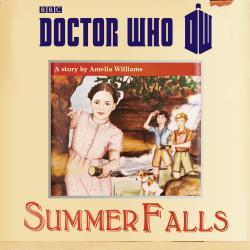
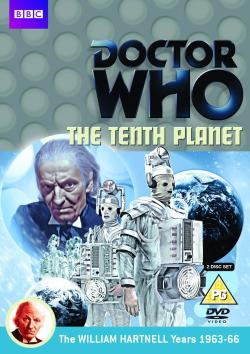
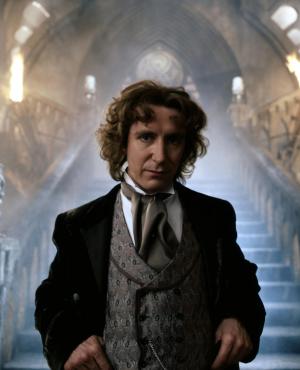 For the previous screenings in the British Film Institute’s monthly Doctor Who 50th anniversary events, there has been some degree of choice for the organisation in which story it selects to celebrate the era of each particular Doctor. While it’s true that every era of the show has a small gaggle of stories held up as classics by a large portion of fandom, there have still always been options. Not so, however, for
For the previous screenings in the British Film Institute’s monthly Doctor Who 50th anniversary events, there has been some degree of choice for the organisation in which story it selects to celebrate the era of each particular Doctor. While it’s true that every era of the show has a small gaggle of stories held up as classics by a large portion of fandom, there have still always been options. Not so, however, for 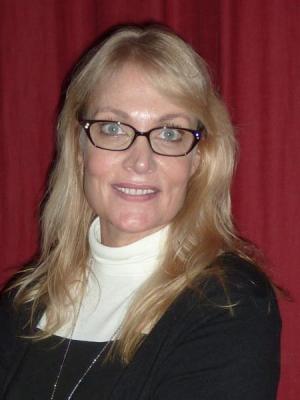 Indeed, for a production that was being pulled in so many different directions – by the BBC, by the Fox Network who were broadcasting it in the US, by Universal who were producing it, by
Indeed, for a production that was being pulled in so many different directions – by the BBC, by the Fox Network who were broadcasting it in the US, by Universal who were producing it, by 